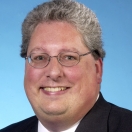
 It is an honor to be recognized as a White House Champion of Change for the collaborative work that we have done in Racine County.
It is an honor to be recognized as a White House Champion of Change for the collaborative work that we have done in Racine County.
Most emergency management offices around the country have limited budgets and are understaffed, while juggling a myriad of tasks and responsibilities including planning, training, disaster exercise facilitation, public outreach and response. As a result, building partnerships and taking a “whole community approach to emergency management” is a necessity, not an option.
According to FEMA, the Whole Community approach is based on the recognition that it takes all aspects of a community to effectively prepare for, protect against, respond to, recover from, and mitigate any disaster. This includes the whole spectrum of emergency management partners—not only the traditional, but also the non-traditional, including volunteer, faith, and community-based organizations; the private sector; and the public, including survivors themselves.
I recognized early in my career that I needed to seek out community partners if we were to have an effective emergency management program. I also realized that professional emergency responders could not handle everything and that we needed to identify groups in the community to augment both emergency response and recovery capabilities. This led to building collaborative relationships with the Boy Scouts and Girl Scouts, providing Community Emergency Response Team training to businesses, groups and citizens and involving non-traditional groups in emergency planning, outreach and training/exercising.
Last fall, I had the privilege of being a plenary session keynote speaker at a Faithful Readiness conference sponsored by the Department of Homeland Security. In my address to the group I explained that I receive two types of calls from churches-how will something impact us or how can we help. In most cases, both require the church or organization to spend some time on the front end preparing-either to limit their exposure to a particular threat/event or to assist them in reaching out in the aftermath of the threat/event.
As a result of the conference, I committed to working with the faith-based community in Racine County, and on January 22nd, we partnered with the City of Racine Mayor’s Office of Strategic Partnerships and Wheaton Franciscan Healthcare to present a forum on preparedness for our churches and faith-based organizations. Pastor Ron Auch, Prayer House Assembly of God-Kenosha, shared his own church’s experience recovering from the January 7, 2008 tornado which did over $1 million in damage to his church. We then walked the participants through an emergency response plan, a church/business recovery plan and an outreach plan to assist in the aftermath of a disaster.
Locally, churches and faith-based groups can also help bridge gaps in the community. First, churches are in a good position to help meet the needs of their own congregants. Second, they can be a great help by reaching out to a recovering community. In addition to the spiritual care that churches may offer, they can also assist in addressing the felt needs of the community. Many churches have large buildings that could be used as shelters, while others could be reception or family assistance centers. They could provide day care or elder care, assist in making meals, and provide housing to outside volunteers.
In addition, churches could organize volunteers to help survivors salvage personal property or clean up damaged property. What a church can do will depend on the church’s size, mission, skill set, etc. Some may do more than others, but every little bit helps. If a church even offers to reach out to its surrounding area, it contributes to that area’s recovery effort.
By working together with the faith-based community we can help our communities become truly united in preparing for, responding to, and recovering from disaster.
David L. Maack, CEM, CPM, WCEM is the Racine County Emergency Management Coordinator. He is active in his community, serving on a number of boards, committees and commissions.


